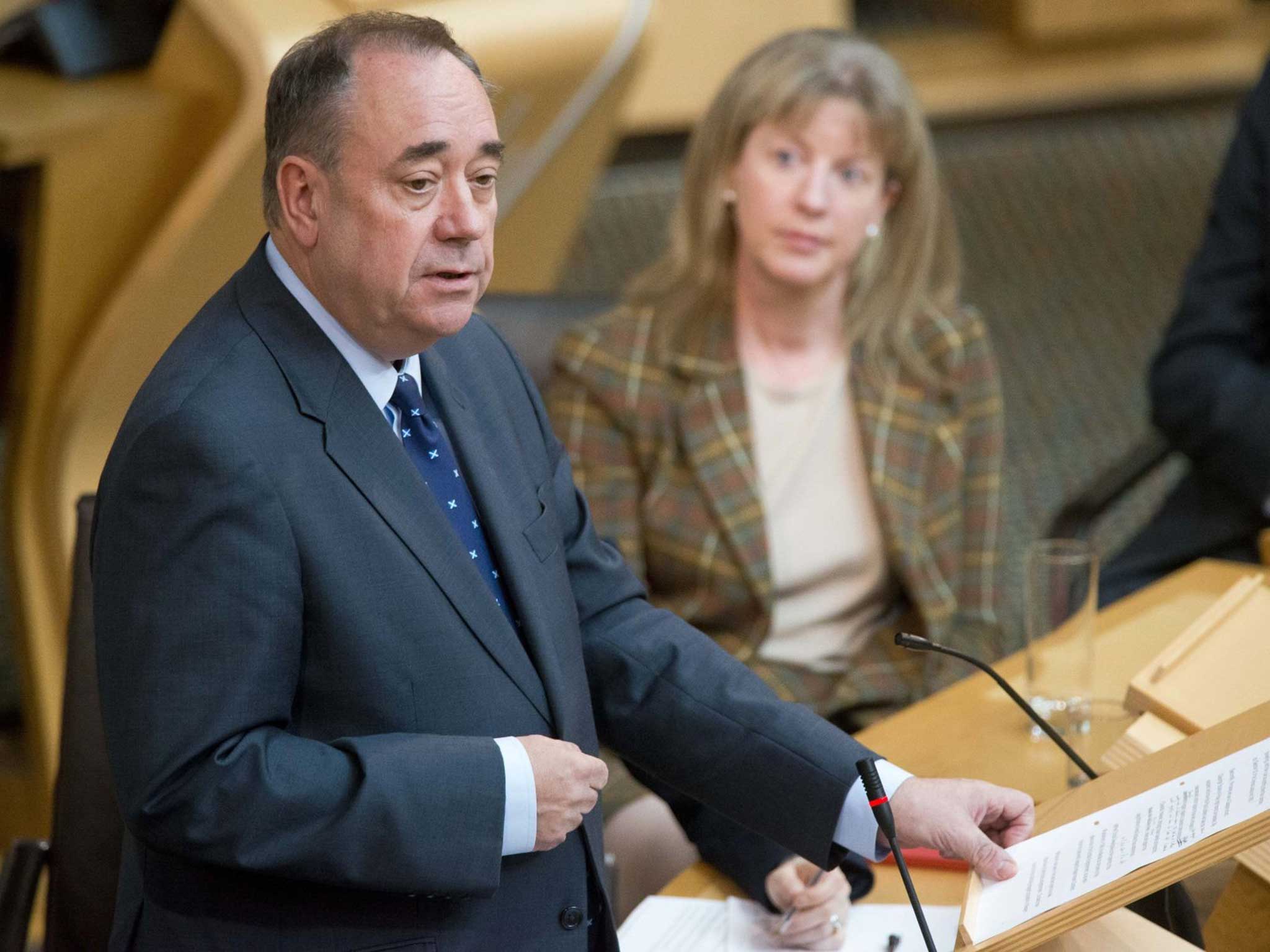Alex Salmond urged to abandon 'conspiracy theories' over why Scotland did not vote for independence
Opposition politicians tackled First Minister Salmond at Holyrood Parliament

Your support helps us to tell the story
From reproductive rights to climate change to Big Tech, The Independent is on the ground when the story is developing. Whether it's investigating the financials of Elon Musk's pro-Trump PAC or producing our latest documentary, 'The A Word', which shines a light on the American women fighting for reproductive rights, we know how important it is to parse out the facts from the messaging.
At such a critical moment in US history, we need reporters on the ground. Your donation allows us to keep sending journalists to speak to both sides of the story.
The Independent is trusted by Americans across the entire political spectrum. And unlike many other quality news outlets, we choose not to lock Americans out of our reporting and analysis with paywalls. We believe quality journalism should be available to everyone, paid for by those who can afford it.
Your support makes all the difference.Alex Salmond has been urged to let go of “conspiracy theories” about why Scotland did not vote for independence and accept that he lost the referendum.
The First Minister was tackled by opposition politicians as the Holyrood Parliament met for the first time since the count.
Ruth Davison, leader of the Scottish Conservatives, told him: “I understand that is how many are feeling who voted for Independence. Hurt, grief, loss. But that pain is not healed by people crying foul and that grief is not ministered to by talk of a conspiracy.”
Her words were echoed by the Scottish Liberal Democrat leader, Willie Rennie, who accused Mr Salmond of trying to discredit the result with a “range of bogus distractions, claims and allegations.”
Mr Salmond resigned the leadership of the SNP hours after Scotland had delivered its 55-45 per cent verdict in favour of staying in the union.
Two days later, angered by the apparent failure of Westminster’s main parties to agree on how to deliver the new powers for the Scottish Parliament during the campaign, he claimed in a BBC Sunday Politics interview: “It’s the people who were persuaded to vote No who were misled, who were gulled, who were tricked effectively.”
That was denied by the boss of the B&Q chain Sir Ian Cheshire, who said: “There’s no conspiracy – it’s called agreement.”
Join our commenting forum
Join thought-provoking conversations, follow other Independent readers and see their replies
Comments